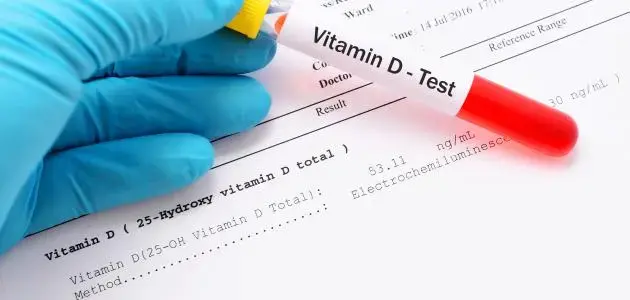Vitamin D, often called the "sunshine vitamin," is one of the most essential vitamins for the human body. It plays a crucial role in building and strengthening bones by increasing their density. A deficiency in vitamin D can cause bone softening in adults, and in children, it can lead to rickets—a condition marked by bowed legs and skeletal deformities. Maintaining adequate vitamin D levels in the body and monitoring its presence in the blood is vital due to its multiple health benefits.
Vitamin D helps regulate calcium and phosphorus levels, keeping them within normal ranges. It also enhances the absorption of these minerals in the intestines and liver. Beyond bone health, vitamin D inhibits the growth of various cancer cells and supports a strong immune system.
Causes of Vitamin D Deficiency
- Insufficient exposure to sunlight, preventing the skin from producing enough vitamin D.
- Women reaching menopause.
- Aging, which reduces the body’s ability to synthesize vitamin D.
- Poor nutrition.
- Excessive body fat, which can store vitamin D and reduce its availability.
- Low vitamin D content in breast milk.
- Use of certain medications, especially anti-epileptic drugs.
- Kidney and liver diseases.
- Genetic factors that encourage the liver to produce phosphate excessively.
Consequences of Vitamin D Deficiency
- Delayed bone growth and delayed tooth eruption in children.
- Bone deformities, such as bowed legs.
- Increased susceptibility to bone fractures, even from minor injuries.
- Development of osteoporosis.
- Higher risks of diabetes, tuberculosis, and hypertension.
- Elevated risk of colon, breast, and prostate cancers.
- Greater likelihood of mental health issues, including depression.
- Softening of bones and insufficient mineralization in the pelvis, spine, and limbs.
- Reduced heart rate.
Symptoms of Vitamin D Deficiency
- Generalized weakness in bones and muscles.
- Persistent fatigue and exhaustion.
- Fractures in joints and hips; frequent falls, especially among the elderly.
- Immune system deficiencies.
- Prominent spine and leg bones.
Note: It is essential to consult a doctor immediately if you notice any symptoms of vitamin D deficiency. Avoid self-medicating with vitamin D supplements, as excessive intake can lead to harmful health effects.
Sources of Vitamin D
Sunlight remains the primary source for producing vitamin D naturally through skin exposure. Additionally, vitamin D can be obtained from dietary sources such as various types of fish, eggs, liver, butter, milk, and dairy products. Regular daily consumption of milk alone can provide sufficient vitamin D for the body’s needs.
Leave a comment
Your email address will not be published. Required fields are marked *




